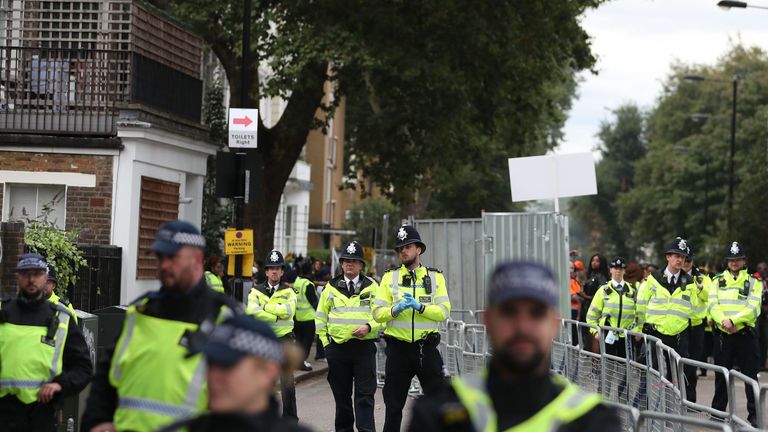By Rowland Manthorpe, technology correspondent
The UK's biometrics commissioner has warned that government use of biometric databases is not "properly regulated", saying there are "clear risks of abuse" unless rules are put in place.
In his annual report, which has been laid before parliament, Paul Wiles said he was "very concerned" about the way the Ministry of Defence searched the police national fingerprint database "without an agreed, clearly defined lawful basis".
Mr Wiles also raised concerns that police use of biometrics "could be used in ways that risks damaging the public interest, for example by re-enforcing biases".
Biometrics are unique bodily identifiers ranging from gait (how a person walks) to voice to faces, which have become increasingly identifiable thanks to new technologies.
Observing the rapid acceleration in the scope and use of biometrics, Mr Wiles noted "the difficulty that legislators have keeping up with the pace and implications of these developments".
Advertisement
Mr Wiles observed the leaps forward made in facial recognition, asking whether it should be regulated in the same way as DNA and fingerprints – the use of which he is responsible for safeguarding.
Mr Wiles complained, for instance, that "no new legislative framework with specific rules to govern the police use of new biometrics in England and Wales" is scheduled for delivery by the Home Office.
More from Science & Tech
He wrote: "I do not know whether this is because they disagree with the need for such legislation or whether this is just another casualty of the need to focus on Brexit matters."
In the last two years, two police forces, South Wales Police and the Metropolitan Police, have begun trials of live facial recognition at public events, including the Notting Hill Carnival and the Champions League Final.

Both forces are currently being challenged in court. Mr Wiles wrote: "These judgments could lead to a re-think of present legislation".
In June 2018, after a long delay, the Home Office published its Biometrics Strategy, which was expected to set out a vision for the use of biometrics.
Mr Wiles called it "ambitious", but warned it would be unlikely to gain public trust, saying its plan "cannot provide political leadership or political decision-making".
Mr Wiles also raised concerns about the legality of arrangements governing Ministry of Defence (MoD) access to police biometric databases.
The MoD uses the police fingerprint database, IDENT1, to check whether fingerprints taken or found during military operations abroad matched to fingerprints taken by UK police or immigration authorities.

Sky News
[contfnewc] [contfnewc]







